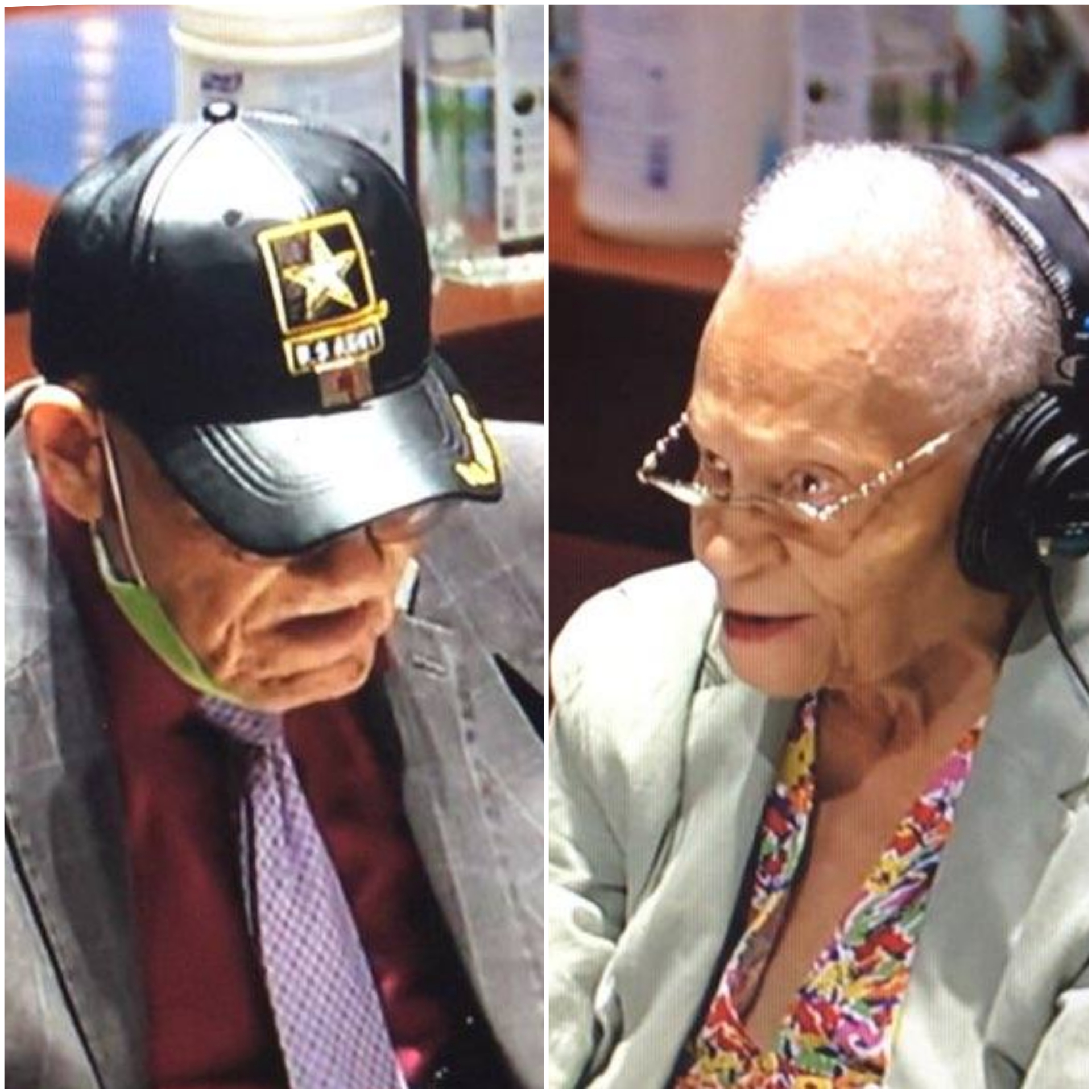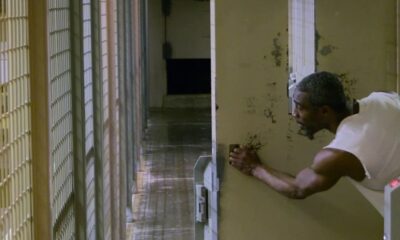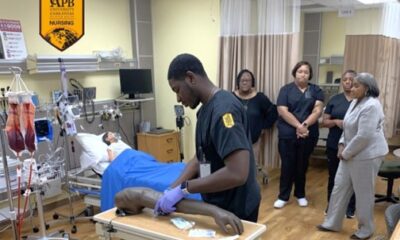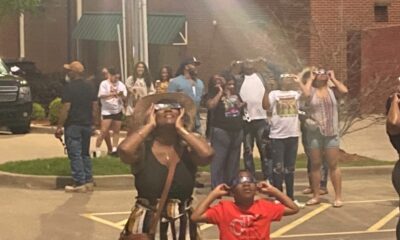Featured
The Sister and Brother Who Survived The Tulsa Massacre Claimed The Nation’s Attention During Their Congressional Testimony

The House Congressional committee room where members of a Judiciary subcommittee sat mesmerized by the testimony of the brother and sister who survived the 1921 Tulsa Massacre that left, by some estimates, 300 African Americans dead and blocks of businesses and homes burned to the ground was silent. On the centennial of one of America’s worst incidents of racial violence Congress listened and discussed ways to address the generational losses suffered by the descendants of the traumatic event.
“Today I’m visiting Washington, D.C., for the first time in my life,” Viola Fletcher stated. “I’m here seeking justice, and I’m asking my country to acknowledge what happened in Tulsa in 1921.”
Fletcher, who recently celebrated her 107th birthday said, “The night of the massacre I was awakened by my family, my parents and five siblings were there. I was told we had to leave and that was it. I will never forget the violence of the white mob when we left our home. I still see Black men being shot; black bodies lying in the street. I still smell smoke and see fire. I still see Black businesses being burned. I still hear airplanes flying overhead. I hear the screams. I have lived through the massacre every day. Our country may forget this history, but I cannot. I will not. And other survivors do not. And our descendants do not.”
Saying Tulsa, Oklahoma “took a lot from me,” Fletcher spoke clearly, her firm voice transporting all in the room and watching back to a nightmare that devastated what was known as the ‘Black Wall Street.’ She took her time detailing the losses suffered in Tulsa, and then she turned the microphone over to her 100-year-old brother, Hughes Van Ellis, a World War II veteran.
“We were left with nothing,” Ellis testified. “We were made refugees in our country. My childhood was hard, and we didn’t have much. We worried what little we had would be stolen from us just like it was stolen in Tulsa. Usually when you have been taught that when something is stolen of you, you can go to the courts to be made whole. You can go to the courts to get justice. This wasn’t the case for us. The courts in Oklahoma wouldn’t hear us. The federal courts said we were too late. We were made to feel our struggle was unworthy of justice, that we were less valuable than whites. That we weren’t fully Americans. We were shown that in the United States that not all men are created equal.”
New York Congressman Jerry Nadler is the Chairman of the U.S. House Committee on the Judiciary.
“The Tulsa-Greenwood Massacre can be described as an example of ethnic cleansing,” Nadler asserted at the beginning of the day’s hearing.
He acknowledged the work of other Congressional leaders to address the impact of the Tulsa massacre including Texas Congresswoman Shelia Jackson-Lee.
From her office Regina Goodwin, an Oklahoma state representative recalled the losses her family suffered during the mob violence.
She said, “Beyond the ‘Yeah, we feel sorry for ya. You’re nice senior citizens, thank you for stopping by.’ They stopped by for justice. And I’m just hoping right hearts and minds will prevail.
Goodwin’s great-grandfather, great-grandmother, grandfather and aunt survived the massacre.
“They went to the district courthouse in 1921, they were not too late, the statute of limitations had not expired. And they went saying that we had property, some 14 properties. We had a building at 123 North Greenwood. My great-grandmother talked of her silverware and her linen. And she talked about her feather mattresses and her piano – destroyed. She talked about the books in the library – gone. And she had the courage when murderers were still walking the streets of Greenwood. When arsonists who thought that they should light curtains on fire and destroy 35 square blocks, she had the courage in the midst of all that chaos, all of that mayhem to say, ‘You took from me what was mine. We worked hard for what we had. We had a tight-knit Black community because segregation would not allow us to interact with our other human beings who just happened to be another color, and we made a great community.’ And when she went to the courthouse, she was rejected outright.”
Along with the sister and brother survivors of the massacre, there is another living survivor. The trio has filed a lawsuit after the city and county of Tulsa that seeks reparations for the event. The descendants of other survivors along with Vernon AME Church and the Tulsa African Ancestral Society are also plaintiffs in the suit.

-

 Featured12 months ago
Featured12 months agoArkansas Sheriff Who Approved Netflix Series Says He Stayed ‘In His Lane’
-

 HBCUS12 months ago
HBCUS12 months agoSenator Boozman Delivers $15 Million to Construct New UAPB Nursing Building
-

 News12 months ago
News12 months agoMillions In the Path of The Total Solar Eclipse Witnessed Highly Anticipated Celestial Display
-

 Featured9 months ago
Featured9 months agoCalifornia Is the First State to Create A Public Alert for Missing Black Youth
-

 Featured9 months ago
Featured9 months agoAfrican American Leaders Stay the Course Amid Calls for President Biden To Bow Out of Race
-

 Featured9 months ago
Featured9 months agoThe Debate Fallout Lands on Both Candidates

